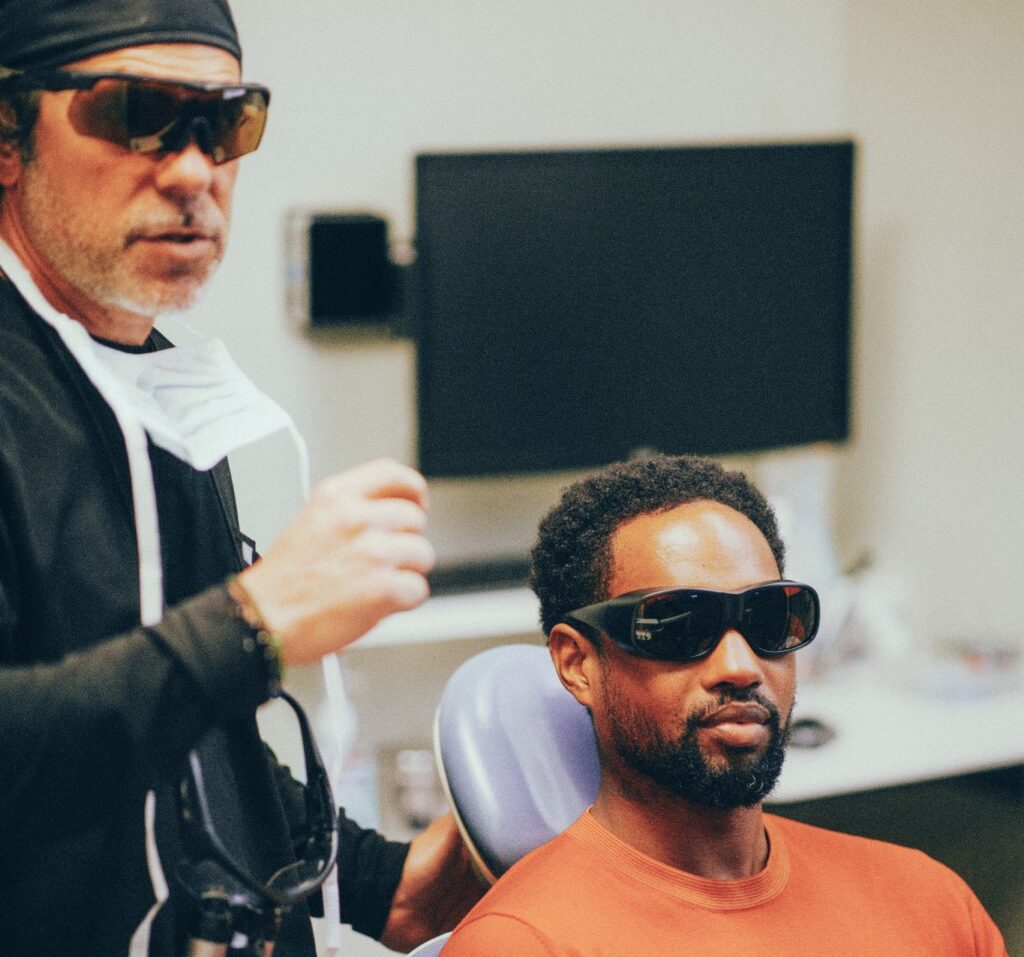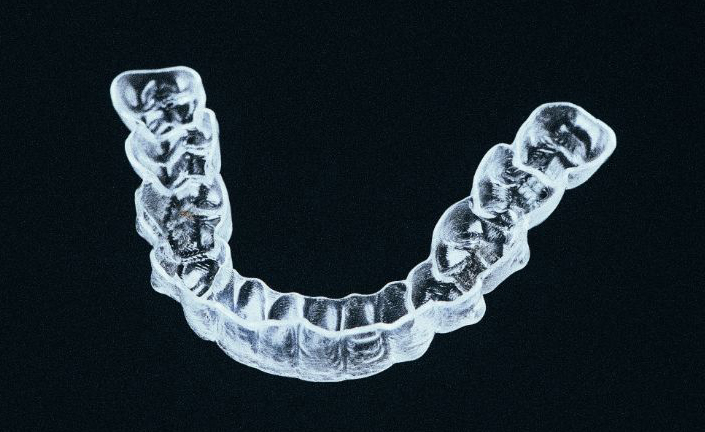At Midtown Manhattan Dental Arts, we strive to provide you with an exceptional dental experience. In order to ensure the best possible outcome, it’s crucial that you are well-prepared for your appointment and understand the necessary steps for recovery. For your convenience, we have compiled detailed guides below, covering various procedures you may undergo at our office.
Please review the instructions carefully in order to ensure a smooth and successful recovery.
Instructions Following Crown, Bridge, Or Inlay/Onlay
Discomfort Management
- Over-the-counter pain relievers: Use ibuprofen or acetaminophen as directed to manage any discomfort following your dental procedure.
Oral Hygiene
- Brush gently: Clean your teeth gently with a soft-bristled toothbrush, avoiding the area of your dental work for the first 24 hours.
- Flossing: Begin flossing gently around the treated area after 24 hours.
- Mouth rinse: Use a warm saltwater rinse (half a teaspoon of salt in eight ounces of water) two or three times a day to help alleviate discomfort and swelling.
Eating & Drinking
- Avoid hot or cold foods and beverages for a few hours after your procedure, as your tooth may be temporarily sensitive.
- Stick to soft foods for the first 24–48 hours, avoiding hard, crunchy, or sticky items that could dislodge or damage your dental work.
- Chew on the opposite side of the mouth from your dental work until the area is fully healed.
Temporary Crown, Bridge, Or Inlay/Onlay Care
- Be cautious: If you have a temporary restoration, avoid biting down hard or chewing sticky foods that could dislodge it.
- Reach out: If your temporary restoration comes off or breaks, contact our office immediately to schedule an appointment for re-cementing or repair.
Follow-Up Appointments
- Attend scheduled appointments: Keep all follow-up appointments with our team to ensure the proper fit, function, and appearance of your dental work.
- Report any issues: If you experience prolonged sensitivity or discomfort, inform us as soon as possible.
Long-term care:
Maintain proper oral hygiene: Regular brushing, flossing, and dental checkups are essential for maintaining the health of your teeth and dental work.
Instructions Following Fillings
Discomfort Management
- Over-the-counter pain relievers: Use ibuprofen or acetaminophen as directed to manage any discomfort following your dental filling.
Oral Hygiene
- Brush gently: Clean your teeth gently with a soft-bristled toothbrush, avoiding the area of your dental work for the first 24 hours.
- Flossing: Begin flossing gently around the treated area after 24 hours.
- Mouth rinse: Use a warm saltwater rinse (half a teaspoon of salt in eight ounces of water) two or three times a day to help alleviate discomfort and swelling.
Eating & Drinking
- Avoid hot or cold foods and beverages for a few hours after your procedure, as your tooth may be temporarily sensitive.
- Stick to soft foods for the first 24 hours, avoiding hard, crunchy, or sticky items that could dislodge or damage your filling.
- Chew on the opposite side of the mouth from your dental work until the area is fully healed.
Sensitivity
- It is normal to experience some sensitivity after a filling, particularly to hot or cold foods and beverages. This should subside within a few days to a week.
- If sensitivity persists or worsens, contact our office to discuss potential adjustments or further treatment.
Follow-Up Appointments
- Attend scheduled appointments: Keep all follow-up appointments with our team to ensure the proper fit, function, and appearance of your filling.
Report any issues: If you experience prolonged sensitivity, discomfort, or any other issues with your filling, inform us as soon as possible.
Instructions Following Denture Or Partial Delivery
Adjustment Period
- Be patient: It may take some time to adjust to your new dentures or partials. Speaking, eating, and getting accustomed to the prosthetic may require a few weeks of daily use.
Oral Hygiene
- Clean your dentures: Remove your dentures or partials and clean them daily with a soft toothbrush and denture cleaner.
- Rinse thoroughly: Ensure that all denture cleaner residue is rinsed off completely before reinserting your dentures.
- Oral care: Maintain good oral hygiene by brushing your gums, tongue, and any remaining natural teeth with a soft-bristled toothbrush and toothpaste.
Eating & Drinking
- Start with soft foods: Begin with soft foods cut into small pieces, and gradually introduce more challenging textures as you become more comfortable with your dentures or partials.
- Chew evenly: Try to chew on both sides of your mouth at the same time to distribute pressure evenly and promote stability.
- Avoid sticky foods: Sticky foods can cause damage to your dentures or partials or make them more difficult to clean.
Denture Care
- Soak overnight: When not wearing your dentures, keep them submerged in water or a denture-soaking solution to prevent drying out.
- Handle with care: Always handle your dentures or partials carefully, as they can be fragile and may break if dropped.
Follow-Up Appointments
- Attend scheduled appointments: Keep all follow-up appointments with our team for adjustments and to ensure the proper fit, function, and appearance of your dentures or partials.
Report any issues: If you experience ongoing discomfort or any other issues with your dentures or partials, inform us as soon as possible to discuss potential adjustments.
Instructions Following Scaling & Root Planing
Discomfort Management
- Over-the-counter pain relievers: Use ibuprofen or acetaminophen as directed to manage any discomfort following your scaling and root planing procedure.
- Ice pack: Apply an ice pack to the outside of your face in 20-minute intervals to help reduce swelling and discomfort.
Oral Hygiene
- Brush gently: Clean your teeth gently with a soft-bristled toothbrush, avoiding the treated area for the first 24 hours.
- Flossing: Begin flossing gently around the treated area after 24 hours.
- Mouth rinse: Use a warm saltwater rinse (half a teaspoon of salt in eight ounces of water) two or three times a day to help alleviate discomfort and promote healing. We may also prescribe a medicated mouth rinse to aid in the healing process.
Eating & Drinking
- Avoid hot foods and beverages until your anesthetic has worn off to avoid burning your mouth.
- Stick to soft foods for the first 24–48 hours, avoiding hard, crunchy, or spicy items that could irritate the treated area.
- Drink plenty of water to stay hydrated and help flush away bacteria.
Bleeding
- Some minor bleeding may occur after the procedure, but should subside within a few hours. If bleeding continues, apply light pressure to the area with a clean, damp gauze pad, and contact our office if bleeding persists.
Follow-Up Appointments
- Attend scheduled appointments: Keep all follow-up appointments with our team to monitor your healing progress and ensure the effectiveness of the scaling and root planing treatment.
- Maintain oral hygiene: Good oral hygiene practices, including regular brushing, flossing, and dental check-ups, are essential to prevent future periodontal issues.
Report any issues: If you experience prolonged discomfort, excessive bleeding, or any other issues following the procedure, inform us as soon as possible.
Instructions Following Root Canal Therapy
Discomfort Management
- Over-the-counter pain relievers: Use ibuprofen or acetaminophen as directed to manage any discomfort following your root canal therapy.
- Ice pack: Apply an ice pack to the outside of your face, near the treated area, in 20-minute intervals to help reduce swelling and discomfort.
Oral Hygiene
- Brush gently: Clean your teeth gently with a soft-bristled toothbrush, avoiding the area of your dental work for the first 24 hours.
- Flossing: Begin flossing gently around the treated area after 24 hours.
- Mouth rinse: Use a warm saltwater rinse (half a teaspoon of salt in eight ounces of water) two or three times a day to help alleviate discomfort and promote healing.
Eating & Drinking
- Avoid hot or cold foods and beverages for a few hours after your procedure, as your tooth may be temporarily sensitive.
- Stick to soft foods for the first 24–48 hours, avoiding hard, crunchy, or sticky items that could dislodge or damage your temporary filling or crown.
- Chew on the opposite side of the mouth from your dental work until the area is fully healed.
Temporary Crown Care
- Be cautious: If you have a temporary crown, avoid biting down hard or chewing sticky foods that could dislodge it.
- Reach out: If your temporary crown comes off or breaks, contact our office immediately to schedule an appointment for re-cementing or repair.
Follow-Up Appointments
- Attend scheduled appointments: Keep all follow-up appointments with our team to ensure the proper fit, function, and appearance of your permanent crown.
Report any issues: If you experience prolonged sensitivity, discomfort, or any other issues with your treated tooth, inform us as soon as possible.
Instructions Following Whitening
Sensitivity Management
- Over-the-counter pain relievers: Use ibuprofen or acetaminophen as directed to manage any discomfort or sensitivity following your teeth whitening procedure.
- Sensitivity toothpaste: Consider using a toothpaste designed specifically for sensitive teeth to help alleviate any discomfort.
Eating & Drinking
- Avoid staining foods and beverages: For the first 48 hours after your whitening procedure, avoid consuming foods and beverages known to cause staining, such as coffee, tea, red wine, dark sodas, or berries.
- No smoking: Refrain from smoking or using tobacco products during the first 48 hours following your whitening treatment, as this can cause staining and reduce the effectiveness of the treatment.
Maintaining Whitening Results
- Regular dental cleanings: Schedule regular dental cleanings to maintain your bright smile and remove surface stains.
- At-home touch-ups: Consult with our team about the use of at-home whitening products or touch-up treatments to maintain your results.
- Good oral hygiene: Brush and floss regularly to keep your teeth clean and reduce the buildup of plaque and stains.
Follow-Up Appointments
- Attend scheduled appointments: Keep any follow-up appointments with our team to monitor the effectiveness of your whitening treatment and discuss any concerns.
Report any issues: If you experience prolonged sensitivity, intense discomfort, or any other issues following the whitening procedure, inform us as soon as possible.
Instructions Following Dental Extractions
Bleeding Management
- Gauze pressure: After your extraction, bite down gently on the gauze pad placed by our team to help stop the bleeding. Replace the gauze as needed, usually every 30–60 minutes, until the bleeding subsides.
- Avoid vigorous activity: Refrain from excessive physical activity and rest for the remainder of the day to reduce the risk of further bleeding.
Discomfort & Swelling Management
- Over-the-counter pain relievers: Use ibuprofen or acetaminophen as directed to manage any discomfort following your dental extraction.
- Ice pack: Apply an ice pack to the outside of your face, near the extraction site, in 20-minute intervals to help reduce swelling and discomfort.
Oral Hygiene
- Brush gently: Clean your teeth gently with a soft-bristled toothbrush, avoiding the extraction site for the first 24 hours.
- Flossing: Continue flossing your other teeth as usual, being careful not to disturb the extraction site.
- Mouth rinse: After 24 hours, use a warm saltwater rinse (half a teaspoon of salt in eight ounces of water) two or three times a day to help alleviate discomfort and promote healing.
Eating & Drinking
- Soft foods: Stick to soft foods for the first 24–48 hours, avoiding hard, crunchy, or spicy items that could irritate the extraction site.
- Avoid using a straw: Do not use a straw for the first 24 hours, as the suction can dislodge the blood clot and delay healing.
- Stay hydrated: Drink plenty of water to stay hydrated and help flush away bacteria.
Dry Socket Prevention
- Do not smoke: Avoid smoking for at least 72 hours after your extraction, as it can increase the risk of developing a dry socket and delay healing.
- Avoid rinsing or spitting: Refrain from forceful rinsing or spitting during the first 24 hours to help prevent dislodging the blood clot.
Follow-Up Appointments
- Attend scheduled appointments: Keep all follow-up appointments with our team to monitor your healing progress and ensure proper recovery.
Report any issues: If you experience excessive discomfort, prolonged bleeding, or any other issues following the dental extraction, inform us as soon as possible.
Instructions Following Implant Surgery/Implant Treatment
Bleeding Management
- Gauze pressure: After your implant surgery, bite down gently on the gauze pad placed by our team to help stop the bleeding. Replace the gauze as needed, usually every 30–60 minutes, until the bleeding subsides.
- Avoid vigorous activity: Refrain from excessive physical activity and rest for the remainder of the day to reduce the risk of further bleeding.
Discomfort & Swelling Management
- Over-the-counter pain relievers: Use ibuprofen or acetaminophen as directed to manage any discomfort following your implant surgery.
- Ice pack: Apply an ice pack to the outside of your face, near the surgical site, in 20-minute intervals to help reduce swelling and discomfort.
Oral Hygiene
- Brush gently: Clean your teeth gently with a soft-bristled toothbrush, avoiding the surgical site for the first 24 hours.
- Flossing: Continue flossing your other teeth as usual, being careful not to disturb the surgical site.
- Mouth rinse: After 24 hours, use a warm saltwater rinse (half a teaspoon of salt in eight ounces of water) two or three times a day to help alleviate discomfort and promote healing. We may also prescribe a medicated mouth rinse to aid in the healing process.
Eating & Drinking
- Soft foods: Stick to soft foods for the first few days, avoiding hard, crunchy, or spicy items that could irritate the surgical site.
- Avoid using a straw: Do not use a straw for the first 24 hours, as the suction can disrupt the healing process.
- Stay hydrated: Drink plenty of water to stay hydrated and help flush away bacteria.
Activity Restrictions
- Avoid strenuous activities: Refrain from engaging in heavy lifting or vigorous exercise for at least 48–72 hours following your implant surgery to minimize swelling and bleeding.
- Rest and elevate your head: Get plenty of rest and keep your head elevated with pillows to help reduce swelling.
Follow-Up Appointments
- Attend scheduled appointments: Keep all follow-up appointments with our team to monitor your healing progress, ensure proper osseointegration, and to assess the success of your implant treatment.
- Report any issues: If you experience excessive discomfort, prolonged bleeding, or any other issues following the implant surgery, inform us as soon as possible.
If you have any questions or concerns about your recovery, please do not hesitate to contact our office.


